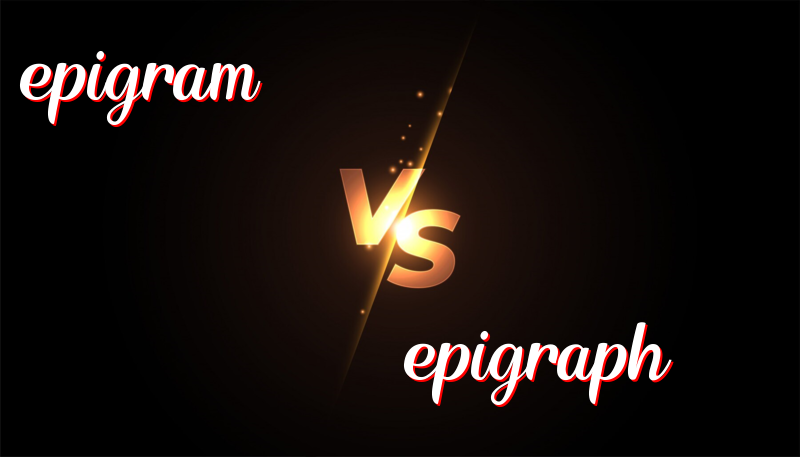Epigram vs. Epigraph: Understanding the Difference
Epigram vs. Epigraph
History: The words “epigram” and “epigraph” both sound similar, but they have different meanings.
Epigram: An epigram is a short, clever, and humorous statement.
Epigraph: An epigraph is a short quotation or saying at the beginning of a book or chapter.
How to Use Them:
Epigram Usage:
1. She wrote an epigram that made everyone in the room laugh.
2. His favorite part of the poetry book was the epigram at the beginning.
3. The comedian ended his show with a witty epigram.
4. The author loved to include an epigram in every chapter of her book.
5. Students enjoyed writing epigrams in their creative writing class.
Epigraph Usage:
1. The novel started with a famous epigraph from Shakespeare.
2. As a history buff, she appreciated the epigraph at the start of the biography.
3. The scientist used an epigraph by Einstein to introduce her research.
4. The professor asked his students to analyze the epigraph before reading the chapter.
5. The poet included a meaningful epigraph to set the tone for the collection.
Trick to Remember the Difference: Think of “epigram” as a “gram” (short message) that is “epic” (cool), and “epigraph” as a “graph” (something written down) at the “epi”-center (beginning).
Summary: Epigrams are witty short statements, while epigraphs are quotations at the beginning of a book or chapter.

Leave a Reply
You must be logged in to post a comment.